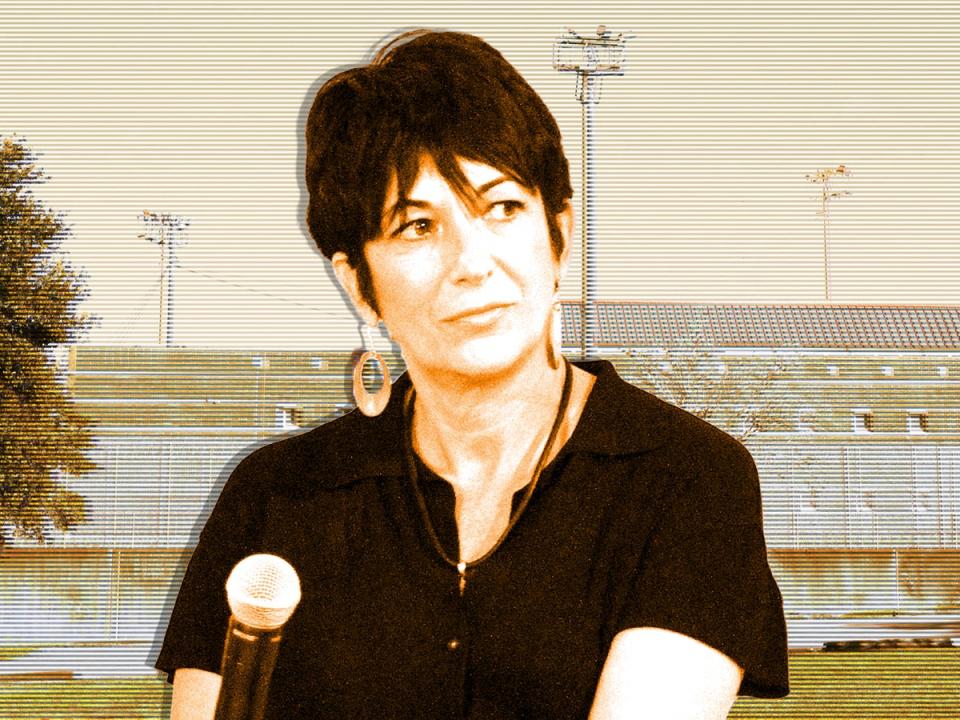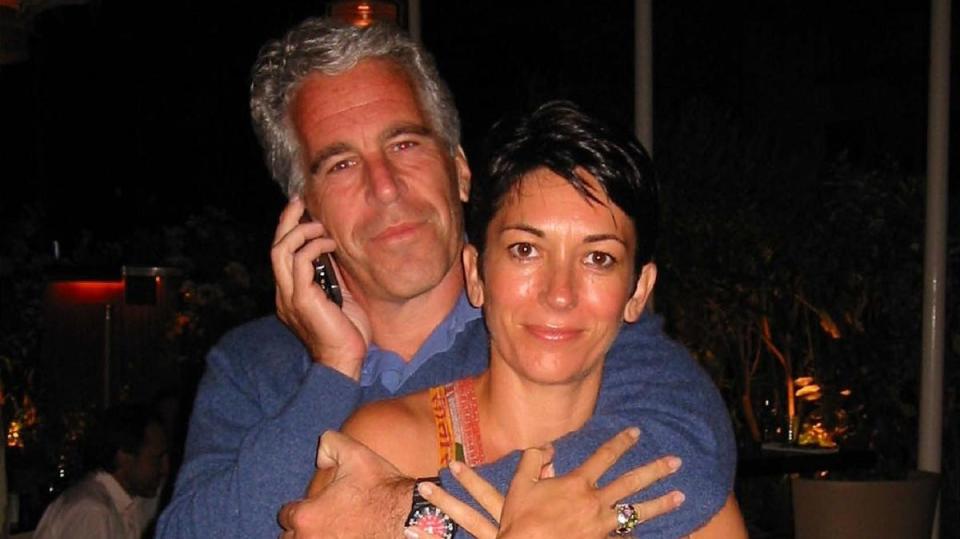‘US court was biased against my sister’: Ghislaine Maxwell’s brother claims sex trafficking conviction unsafe
Ghislaine Maxwell’s brother has accused the US justice system of bias and said his convicted sex trafficker sister did not receive a fair trial, ahead of a crucial appeal hearing next month.
The former socialite, who was found guilty of trafficking underage girls for disgraced billionaire Jeffrey Epstein over the course of a decade, was sentenced to 20 years in prison in 2022.
Now, just weeks before a pivotal appeal which Ian Maxwell hopes could see his sister retried on all five counts and her sentence quashed, he has claimed that three jurors in the trial were unable to make impartial judgements because of their own history of sexual abuse.

Speaking exclusively to The Independent, Mr Maxwell said: “The American justice system and the court were biased against my sister, and she didn’t get a fair trial.
“How could they fairly and dispassionately consider evidence in a sex abuse case? On this issue alone, Ghislaine should have her conviction kicked out.”

Maxwell was found guilty of recruiting and grooming four teenagers for sexual abuse by Epstein, who was her boyfriend at the time, and who killed himself in prison in 2019 while awaiting his own sex trafficking trial.
Judge Alison Nathan, who presided over the trial, said Maxwell’s behaviour had been “heinous and predatory”. The court also heard harrowing testimony from victims who described how Maxwell had lured them to Epstein’s homes where they were abused.
Attention now turns to 12 March, when an appellate court of three judges could sensationally overturn Maxwell’s conviction on the grounds that more than one juror perjured themselves, potentially setting the stage for her release.
Maxwell’s defence have argued that just days after she was found guilty, her conviction began to unravel when a juror named as Scotty David revealed in an interview with The Independent that he had been a victim of sexual abuse.
In an astonishing revelation, he claimed that his own experiences had helped convince fellow jurors that Maxwell’s accusers were telling the truth.
The explosive disclosure threatened to sink the entire conviction, but Judge Nathan insisted Mr David’s personal experience would not have disqualified him from the process.
A second juror later disclosed that they too had experienced sexual abuse. And Maxwell’s defence also believe a third juror also lied about being abused, which Mr Maxwell said “deprived the defence of the opportunity to challenge their selection as jurors”.

In an April 2022 ruling, four months after Maxwell’s conviction, Judge Nathan said she would not have excluded Scotty David from the jury had he originally disclosed his abuse.
This was echoed by prosecutors opposing calls for a retrial, who argued that “multiple other potential jurors in this case reported having experienced sexual abuse and were nonetheless qualified as jurors”.
Maxwell March appeal
Meanwhile, Maxwell’s defence team continue to build her case ahead of the 12 March hearing. They will repeat previous claims that she was entitled to rely on a 2007 non-prosecution agreement (NPA), which saw Epstein plead guilty to Florida state prostitution charges in exchange for immunity – extended to his “potential co-conspirators” – over allegations of sexual abuse at his Palm Beach mansion.
“The prosecution ignores this and shamefully the court condoned it,” said Mr Maxwell, claiming: “The USA broke its promise.”
Judge Nathan ruled twice in 2021 that the agreement 14 years prior with state attorneys in Florida did not bind authorities in New York from bringing charges, concluding that the arguments brought by Maxwell’s lawyers on the matter were not “persuasive”.
Urging the appeal court to uphold Maxwell’s conviction, US government lawyers further argued that she had “no right to invoke the protections” of the NPA because she was not a signatory or third party to the agreement.
In her appeal, Maxwell also claims she was “convicted of crimes with which she was not charged” after the court refused to correct the jury’s “misunderstanding” of elements of the charges – which federal prosecutors argued was not the case.
In a final attack on his sister’s conviction, Mr Maxwell said this week: “The case against her was riddled with serious procedural and other errors of the law and the alleged crimes so old they should not have been prosecuted, according to the US Statute of Limitations.”
Judge Nathan also rejected this claim, ruling that a move by the US Congress to remove time limits on prosecuting child sex trafficking offences in 2006 applied to those in the indictment against Maxwell.
While Maxwell has urged the appeal court to give her a more lenient sentence if she is not granted a new trial, prosecutors argue that her sentence is not unfair, dismissing her arguments to the contrary as “cursory and undeveloped”.
Four victims gave evidence against Maxwell at her trial, recounting her role in facilitating Epstein’s abuse.
A victim impact statement was also read at her trial on behalf of Virginia Giuffre, who did not testify. In it, Ms Giuffre, who has subsequently settled a sexual assault case against Prince Andrew, said: “I want to be clear about one thing: without question, Jeffrey Epstein was a terrible paedophile. But I never would have met Jeffrey Epstein if not for you. For me, and for so many others, you opened the door to hell.”
Maxwell – daughter of the late media tycoon and fraudster Robert Maxwell – is currently housed in Florida’s low-security Tallahassee prison. She is said to have lodged hundreds of complaints, including over a lack of vegan food options and access to black hair dye.
In a recent prison report on the state of FCI (Federal Correctional Institution) Tallahassee, black mould was found on walls and ceilings, storage facilities were in a state of disrepair with vegetables found rotting in fridges and mouldy bread served to inmates. A cafeteria was found to contain broken stools with sharp edges which could be used as weapons, leaking windows, and scores of dead insects.
Prison authorities told The Independent they would not discuss complaints filed by inmates, citing privacy, safety and security concerns.
Maxwell is currently eligible for release in July 2037.


